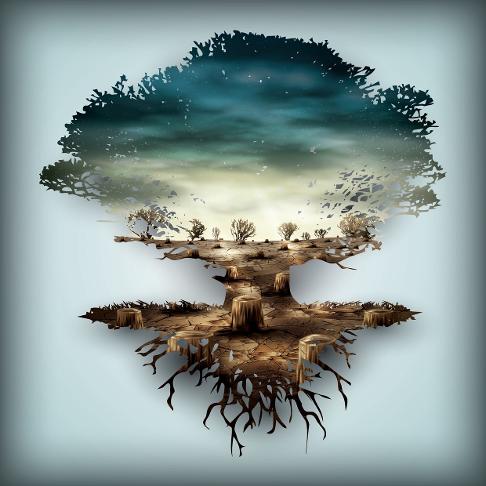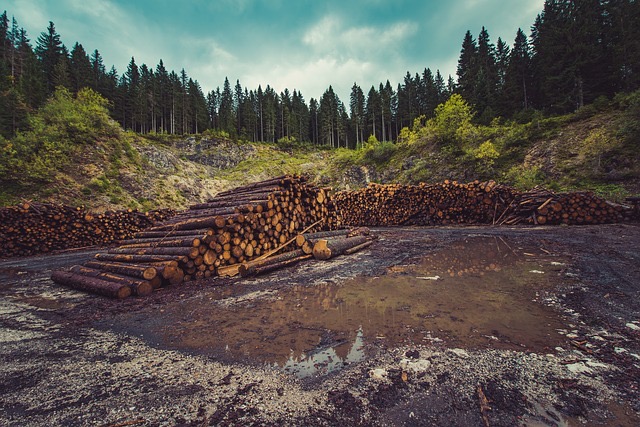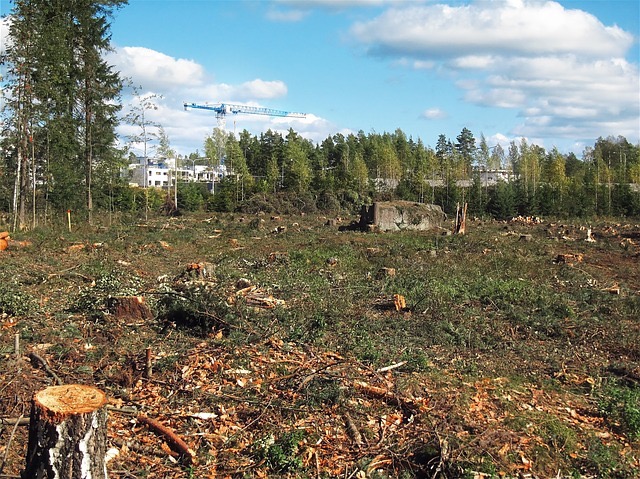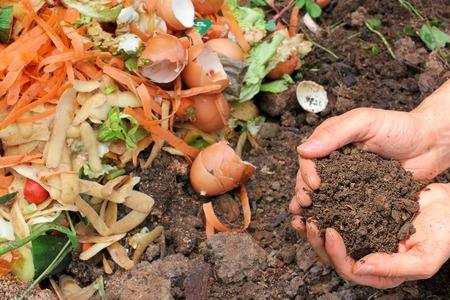Home Grown
Sustainable Living

Building modern, energy efficient homes with sustainable resources.
MODERN NEVER LOOKED SO GREEN.
Hi. My name is Marvin. For some years now I've been determined to helping to make the world a better place. My passion are modern, energy efficient homes using sustainable resources. So bookmark this page and come back on a regular basis if you are interested in the latest trends and cutting edge information about this exciting topic. However I would like to start with some thoughts about another topic which is dear to my heart: Deforestation.
How Global Deforestation Affects Our Daily Life Even if We Don't Notice It
 The world is growing so fast that it is completely hard to match. With that growth comes as well the increasing need for space which turns out to be a bit of concern. The desperate need for land for various needs – agricultural, industrial and population – deforestation is the direct action that occurs. With this, the fate of rainforests all over the world hangs and its devastating effects to the world is widespread.
The world is growing so fast that it is completely hard to match. With that growth comes as well the increasing need for space which turns out to be a bit of concern. The desperate need for land for various needs – agricultural, industrial and population – deforestation is the direct action that occurs. With this, the fate of rainforests all over the world hangs and its devastating effects to the world is widespread.
What is Deforestation?
In simple words, deforestation simply means the felling and clearing that happens to rainforests and tree plantations all over the world. The trees are being cleared for reasons of accommodating urban, agricultural and industrial needs. When it comes to deforestation, the forest cover is permanently ended in order to make the land available for commercial, industrial and residential use.
To this day, there is only just about 3 percent of the original rain-forest in America that remains while the rest of the world’s forest cover is greatly compromised. Because of this, the world’s green cover is down too low to about only 30 percent. Every year, there is an estimated 7.3 million acres of rain-forest are lost every year. Deforestation leads to animals and plants’ extinction – the ecology and environment becoming imbalanced.
The Global Impact of Deforestation
Deforestation is regarded to be very alarming for the fact that its immediate and long-term effects are bound to affect us continuously. At the rate that it is right now, predictions say that the world’s rain-forests will all be soon destroyed if it continues at the same pace. When that happens, you can expect that it will greatly affect your daily life more than how it already affects it today.
Imbalance in Ecology and Climate
The impact of deforestation is not only in the environment and the imbalance of the ecology. Animals and plants becoming extinct are only the firsts of its immediate effects. Aside from the ecology, it also tilts the balance of climate in more ways than one. Some of the immediate effects of deforestation are the compromised release of water vapor in the air and the loss of shade to keep the soil moist which leads to imbalance of the atmospheric temperature. It makes it all difficult for the ecology and climate that living organisms are having great difficulty in surviving and adapting to new habitats.
Increases Global Warming
Even humans are affected with this as deforestation is also one that further increases global warming. Not a lot of people know because not a lot of people feel concerned but, trees play a major role in controlling global warming. Trees utilize green house gases that allow them to greatly help in restoring the balance in the atmosphere. If the trees are constantly cut, there will be a lot of green house gases which will add to our global warming problems. With global warming also comes the problem of raging wildfires due to dry out leaves and the scorching heat of the sun.
 Soil Erosion and Floods
Soil Erosion and Floods
Soil erosion and the increased instances of floods are some of the most obvious impacts of deforestation to a global scale. These are also the most obvious effect there is when tree plantations and rain-forests are cleared. With the lack of shade so that the soil remains moist, it becomes dry when directly exposed to sun. At the same time, without trees there is nothing that will hold the soil when heavy rain pours. Then there comes the flood as well that happens when the natural flow of the water is disrupted.
Everybody in the world is affected by deforestation because every one of us is connected. You might think that only the animals and plants are affected. But, you are affected as well because rain-forests are your primary resources for a lot of things. You consume both plants and animals and when they become extinct, you will end up hungry. The flood, fire, landslides and other destructive effects of deforestation can destroy your properties and results to loss of your home. Deforestation affects you in ways more than you know.
What Can Be Done About Deforestation
Fortunately, a lot of people can see the global effect of deforestation and has already made the initiative of implementing rules and laws to reduce deforestation. But even your can help in curbing the effects of deforestation. Every homeowner can help in small scale to prevent the harmful effects of global deforestation by means of planting trees. Click here to find out more about tree planting and pruning.
That’s right. The only real effective way of preventing the destruction of rain-forests is by planting more trees. With billions of people all over the world, it is great help if at least one person will plant a tree or at least people would plant trees in place of what they cut. This way, the balance can be maintained and the harmful effects of deforestation can be countered.
Technological development is not wrong. But it is time that people realize continuously cutting trees in abandon has dramatic effect to people’s lives. You may not realize it right now, but in the end the threat of rain-forests point at you. In this case, you must be responsible by planting more trees in place of all the green covers you fell.
Along with planting trees, you must teach others of the importance of the environment and how they can help save the forests in their own simple ways. Encourage them to live in a way that does not hurt the environment, restore the damaged ecosystems and support the establishment of parks to protect the wildlife. All these can very well help in at least slowing down effects of deforestation.
Planting trees is the simplest and most effective way of countering the problems involving deforestation. This way, even kids and ordinary individuals can have their contribution in helping restore ecosystems, protect the environment and save the world. It is one way that ensures the next generation can truly have a future and will be able to see what beauty the world is.
Composting Saves Our Landfills
 Instead of throwing away yard waste and food scraps, consider composting these waste materials at home to make a natural fertilizer for your plants and shrubs. Composting saves space in our landfills and prevents the build up of methane. Moreover, composting eliminates the need to use harmful chemical fertilizers, reduces plant diseases, and encourages the growth of useful fungi and bacteria that enrich the soil.
Instead of throwing away yard waste and food scraps, consider composting these waste materials at home to make a natural fertilizer for your plants and shrubs. Composting saves space in our landfills and prevents the build up of methane. Moreover, composting eliminates the need to use harmful chemical fertilizers, reduces plant diseases, and encourages the growth of useful fungi and bacteria that enrich the soil.
Composting Requirements
Composting is achieved by mixing 2 essential ingredients with the right amount of water:
1) Greens - This includes grass trimmings, vegetable & fruit waste. They provide nitrogen for the compost
2) Browns - This includes typical yard waste such as dry leaves, wood chips, twigs, and branches. They provide carbon
When composting, use equal amounts of browns and greens and mix up different sized elements together. Typical Composting elements include fruit & vegetable waste, yard waste, paper, sawdust, hey, tea bags and coffee grounds.
Some waste materials are not good for composting. They release harmful substances, create odors or attract pests such as flies and rodents. These elements should be avoided when composting. Examples include coal, dairy products, lard, meat, fish bones, cat litter, and chemically treated yard waste.
If you have a large amount of yard waste that exceeds your composting needs, consider renting a dumpster from Disposabins to get rid of any excess landscaping debris such as grass clippings, twigs, branches, tree stumps, or dead leaves.
Making Compost at Home
First, pick a dry spot in your backyard with no direct sunlight. Start adding brown and green waste into a pile along with water. For dry materials, moisten them first before adding to the compost. Make sure larger sized pieces are shredded or chopped into smaller pieces. Keep the pile covered with a moist tarp.
Composting usually takes a few months until it is ready. Once the compost has a rich, dark color, it is ready to use. Sprinkle some compost around plants and shrubs and watch them become healthier and grow faster.
Alternatively, if you prefer composting indoors or live in an apartment, most hardware and garden supply stores offer indoor composting bins. You can also create a do it yourself compost bin using plastic boxes, garbage cans or old buckets. Punch a few holes in the container for ventilation. Pick a good location for your bin such as the space under the sink. Place the bin on a tray then add soil and newspaper. Then add food scraps, vegetable and fruit waste every day. Remember to mix the compost every week and add new soil as needed.
